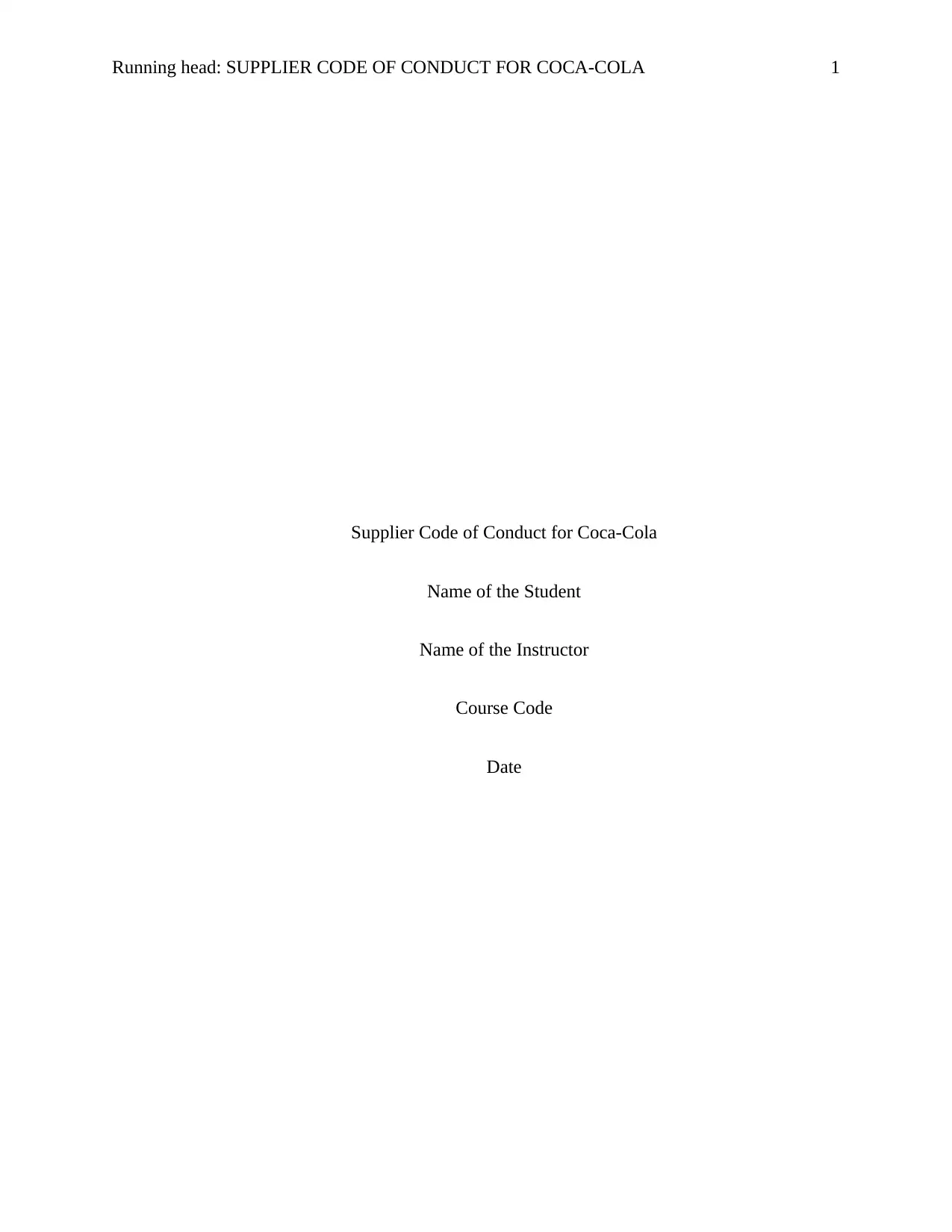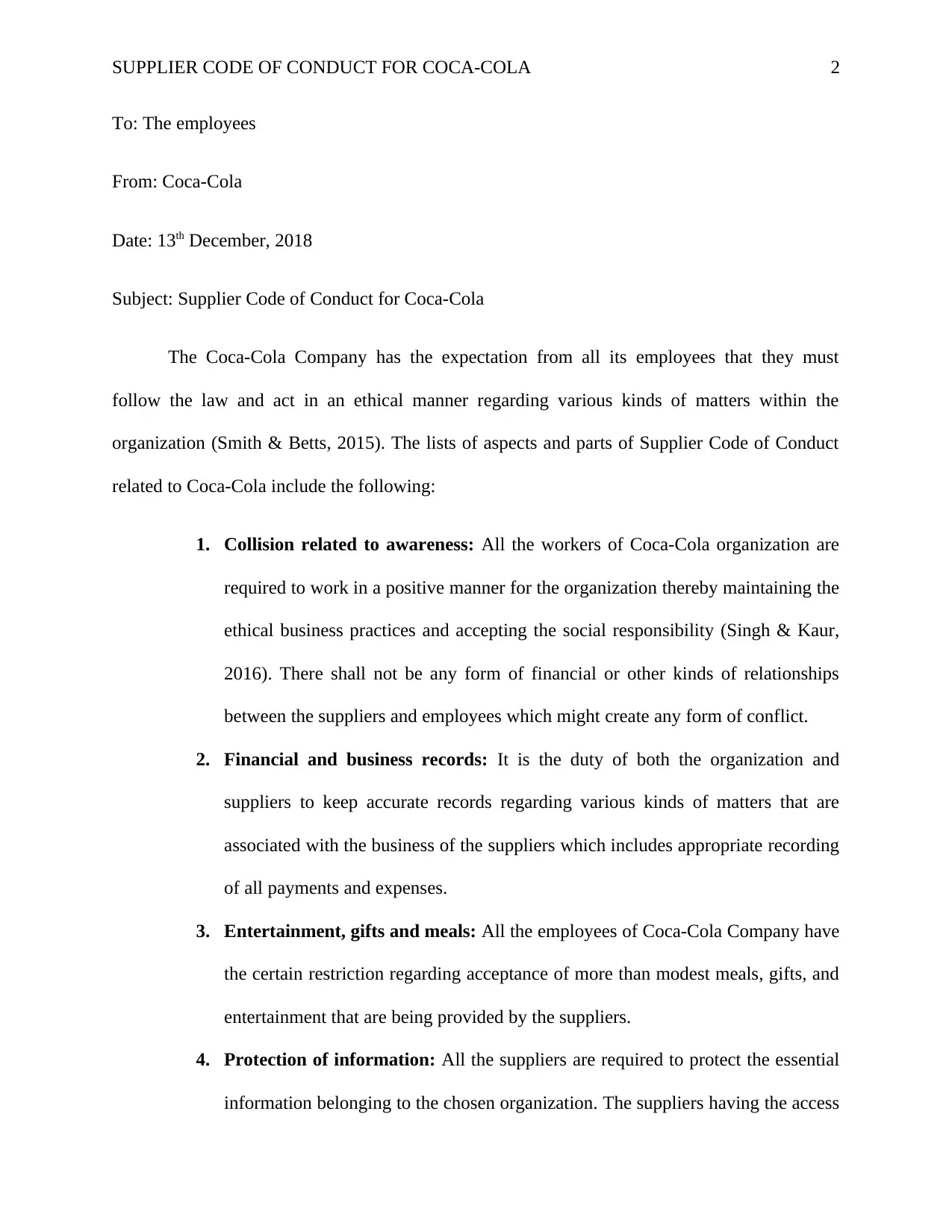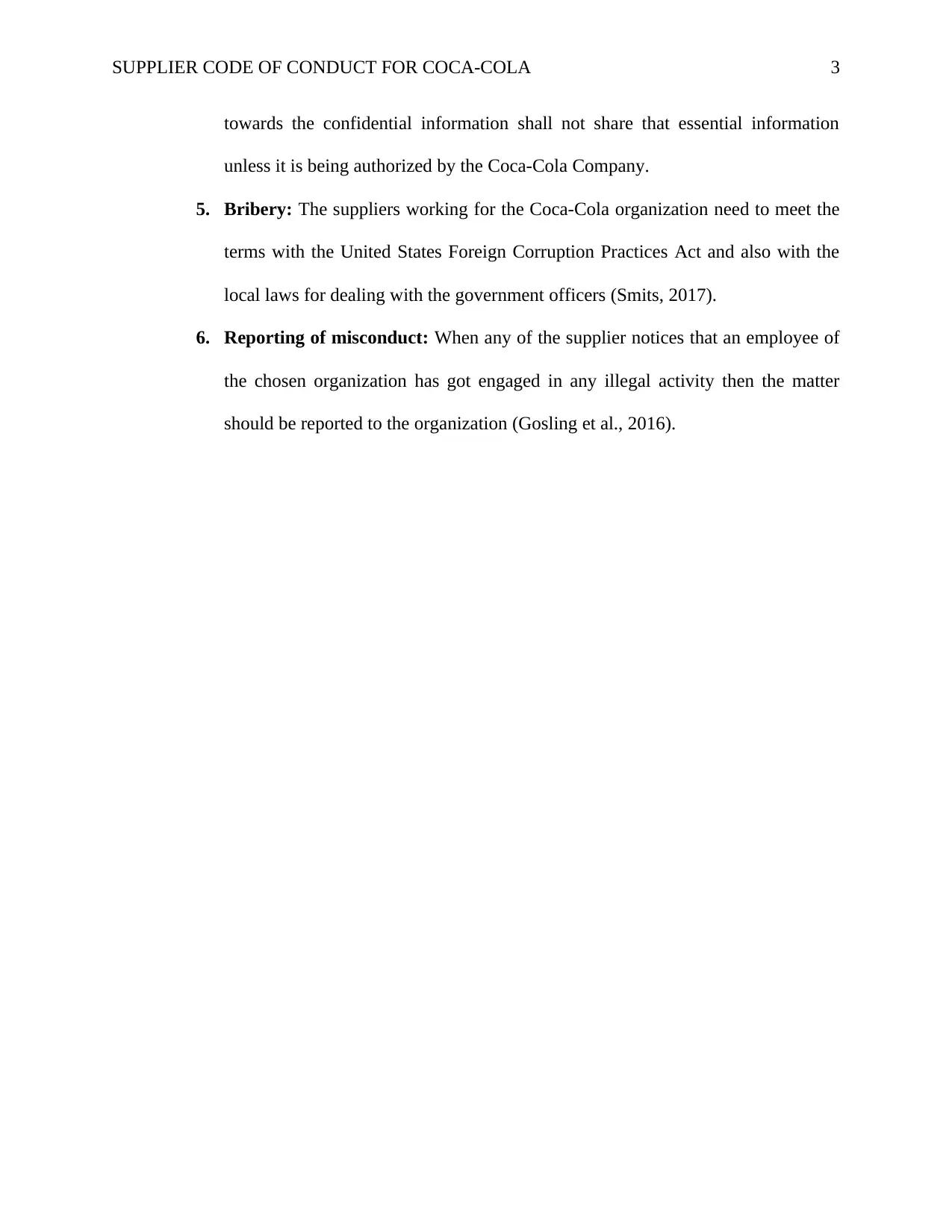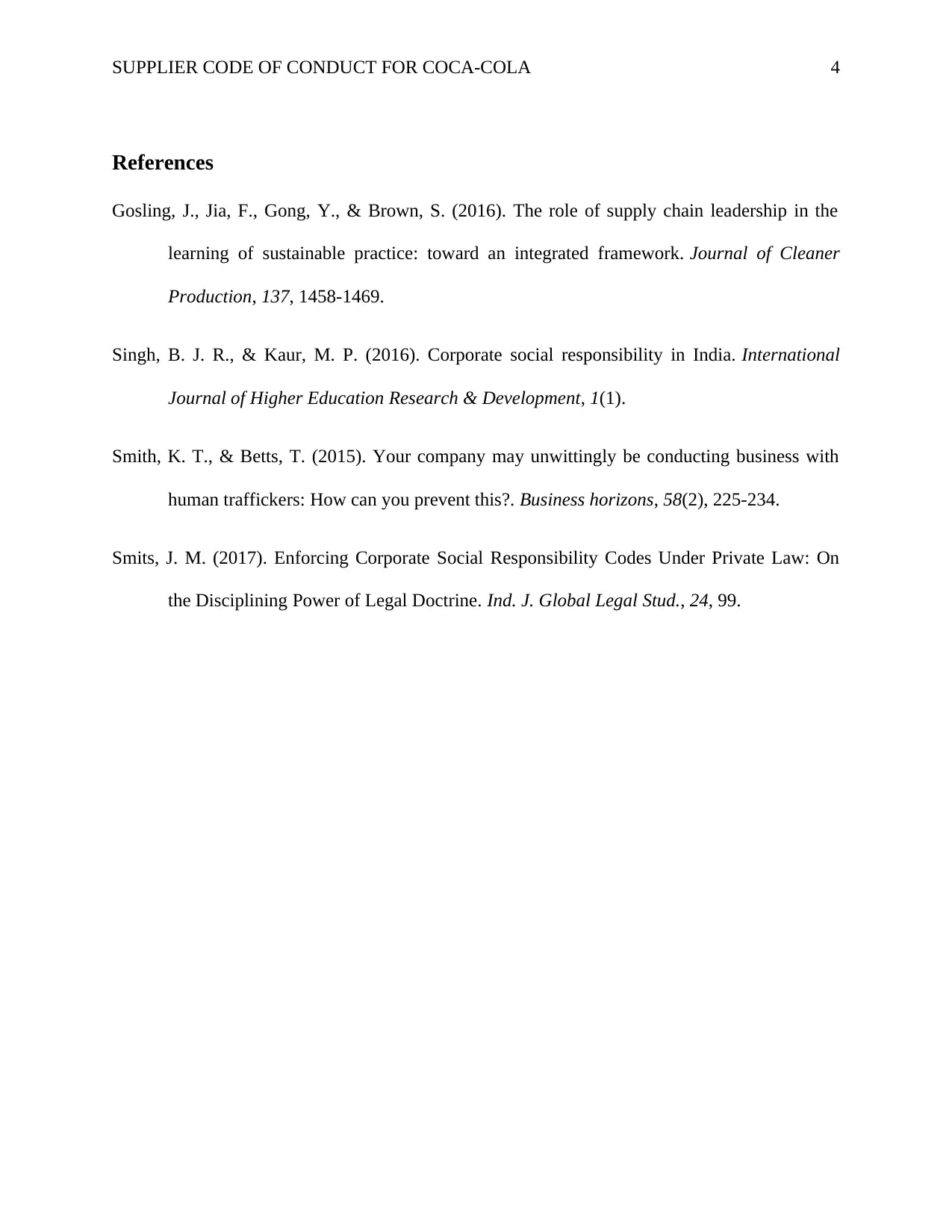Business Ethics: Coca-Cola Supplier Code of Conduct Analysis
VerifiedAdded on 2023/05/27
|4
|570
|416
Report
AI Summary
This report provides an analysis of the Coca-Cola Supplier Code of Conduct, focusing on ethical business practices and its impact on the organization. The report discusses the company's expectations for its suppliers, including adherence to legal standards and ethical conduct. Key aspects covered include conflict of interest, financial and business records, acceptable gifts and entertainment, and protection of confidential information. The report also addresses the company's stance on bribery and the importance of reporting misconduct. The report draws on academic sources to support the findings and recommendations, highlighting the importance of upholding ethical standards and the potential consequences of non-compliance. The report emphasizes the need for suppliers to align their practices with the Coca-Cola Company's values and policies to ensure a sustainable and ethical business relationship.
1 out of 4






![[object Object]](/_next/static/media/star-bottom.7253800d.svg)